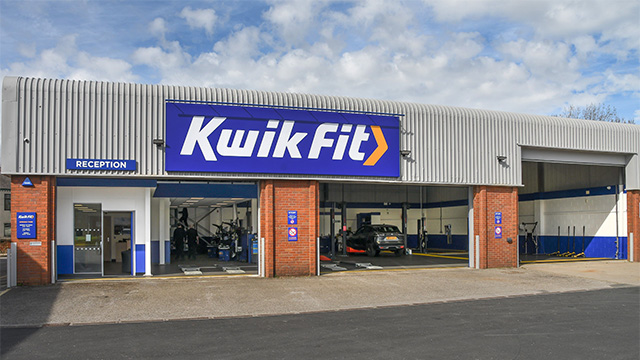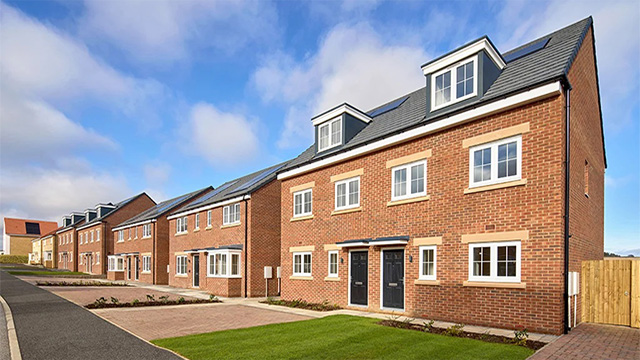Huge growth in the telecommunications sector could translate into new office requirements on business parks. Lisa Pilkington hooks up to a key potential occupier
Telewest Communications is the UK’s second-biggest communications company and it is looking to acquire up to 13,935m2 (150,000 sq ft) in office space over the next 12 months.
Jason Peckmore, head of property and facilities management at Telewest, says: “Our South East requirements are between 50,000 sq ft and 100,000 sq ft. In Scotland we’re looking for 25,000-30,000 sq ft and, in the North West, we want up to 20,000 sq ft.”
These requirements, like all potential moves, are subject to change. Microsoft’s agreement to purchase a near-30% stake in the company and Telewest’s merger discussions with Cable & Wireless Communications could curb its designs on new space.
Peckmore is unsurprisingly guarded about revealing the company’s future property plans. He says: “With a potential consolidation within our business, this may vary our requirements and generate disposals.” An ongoing review of Telewest’s logistics operations may lead to a number of disposals if the firm does decide to cut back.
Whether acquiring or disposing of property, however, Peckmore refuses to retain a sole agent. “I’m anti that. We’ll employ the right agents for the right deal – an agent is only as good as his last deal. They’re like secondhand-car salesmen.
“We have no strong allegiance with anyone, except a rating allegiance with GVA Grimley,” he says.
Nevertheless, Peckmore does have a pool of eight or so favoured agents, including DTZ Debenham Thorpe, Lee Baron, GVA Grimley and Gooch Webster, all of which are looking for repeat business.
The key factors in choosing one agent over another, says Peckmore, include how good the agent’s last deal was, the breadth of local knowledge and how competitive the fees are. He adds: “They all understand that – it keeps them on their toes.”
Annual operating costs reach £40m
Peckmore takes a refreshingly uncomplicated view of property. “A building is just a building – real estate just keeps the papers dry,” he says. The real estate under Peckmore’s control totals 278,700m2 (3m sq ft), which notches up annual operating costs of £40m. Premises range from large call centres to logistics and warehousing sites and retail space.
Peckmore heads a small in-house real estate department which, in his words, “sanity check” internal property requirements. Focused on costs, he does not aim to make landlords rich: “I want to keep requirements as small and as cheap as possible. We don’t let property decisions lead the business, it’s the other way round.”
The operator has a number of sites on business parks, including Aztec West in Bristol, South Gyle and Edinburgh Park in Edinburgh, The Waterfront at Dudley and Birmingham Business Park.
Space taken tends to be on the periphery of towns, and business park rents range from £118 per m2 (£11 per sq ft) at The Waterfront to £215 per m2 (£20 per sq ft) in Edinburgh Park.
In Peckmore’s view, lease terms are as important as the price. “We’re not adverse to longer terms, as long as they have breaks – a five-year break is always imperative,” he explains.
He believes landlords could do more to help their tenants: “If developers manage to pull people in, then, when they’ve got you, they do become a bit complacent. They’re not as proactive at managing costs down for occupiers as they could be.”
For premises such as telephony switches, the firm prefers leasehold premises. However, when it comes to sites where extensive cabling has to be laid to support its cable TV network, ground leases or freeholds are preferred.
Proximity to a serviced office provider has become increasingly important. “Serviced offices are our buffer,” Peckmore explains.
Companies such as Regus help to relieve the pressure for extra space when necessary. And Peckmore feels that serviced office providers have now aligned their pricing structures more in favour of occupiers.
|
Telewest as tenant Business park developers should work harder Telewest Communications signed a deal with Arlington in May for 976m2 (10,500 sq ft) of offices on Aztec West Business Park in Bristol, where the firm has a total of 6,039m2 (65,000 sq ft). Jason Peckmore, Telewest’s head of property and facilities management, says that his firm enjoys a traditional landlord-and-tenant relationship with Arlington: “I don’t have close dealings with them, but we don’t have a bad working relationship.” Nevertheless, he feels that there is room for improvement on Aztec West. “Arlington is a good manager of the park, but it hasn’t thought about how the amenities fit together. Aztec has a level of amenities that is acceptable – it’s fairly bland and quiet. There are voids in the space, with a high turnover of tenants,” he says. Peckmore’s criticism is not confined to Arlington. “Business parks are generally well developed and managed, but developers forget about levels of amenities and the impact on local infrastructure,” he laments. Many fail to recognise that occupiers not only require a good working environment, but associated leisure amenities such as gyms, sports centres, restaurants and bars. “A classic example where it does work is at The Waterfront at Dudley. It’s close to Merry Hill, has a swimming pool, sports centre, gym and 10-12 restaurants.” However, in Peckmore’s view, this is an exception: “Token gestures are often made on business parks – but they don’t work.” These are not just idle complaints. They have resulted in a reappraisal of the arguments for locating out of town. A year ago, Telewest only really considered business parks for occupation. Things have changed: “We’re now looking at the city centre because it has better amenities. It is playing an increasingly important role and already has the necessary infrastructure.” Inadequate infrastructure for business parks is another Peckmore bugbear: “The Utopian situation of never needing to use the car is not going to happen in our lifetime. I’d like to think we can reduce parking ratios, but public transport is simply not up to coping at the moment. If we can improve infrastructure, we can improve business parks’ viability.” But he warns: “Unless developers have partnerships with local authorities to ensure that suitable infrastructure and transport links are connected to business parks, then the growing focus towards the city centre will continue.” |










